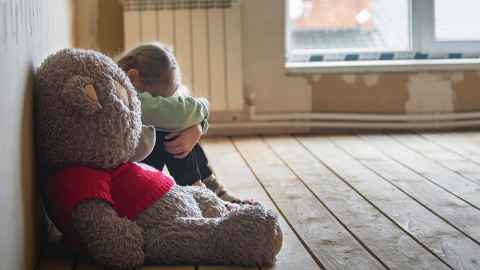Study slams Family Court’s reliance on 'junk' research
16 July 2025
The Family Court is basing decisions on ‘junk’ evidence and putting children's futures at risk, according to a new journal article.

You might imagine the expert evidence heard in the Family Court, such as what's provided by court psychologists, would stand up to scrutiny… not so, according to a scathing new journal article.
The study suggests judges, lawyers and psychologists in New Zealand's Family Court are routinely accepting ‘junk’ evidence to support critical decisions about children's lives.
University of Auckland law scholar Associate Professor Carrie Leonetti reviewed 29 Family Court judgements under the New Zealand Care of Children Act in which court professionals claimed to be citing academic research to support their decisions. Her investigation finds they frequently cited material that was not academic research, instead relying on online content, unpublished handouts, and presentations from conferences or legal training sessions.
"Clinical psychologists, often working without specialised forensic training, are presenting evidence that would not withstand academic scrutiny," she says.
"I'm shocked at how judges never go … 'but but but'… and ask some questions. We need to define what's real, what isn't, what's reliable, and what's not.”
New Zealand's Evidence Act 2006 and the High Court Rules require expert witnesses to base their recommendations on evidence that's within their area of expertise and generally accepted within a scientific field and specify the literature they rely on. Yet Leonetti’s paper details breaches of these requirements – including experts opining outside their area of expertise, misrepresenting research, and failing to qualify sweeping claims.
Examples include statements like "almost all disclosures of sexual abuse by children whose parents have separated are false" or "studies show that all children are better off in shared care" – broad claims Leonetti says are based on misrepresented or misunderstood literature.
The Court's reliance on a small, fringe collection of writings from conferences, trainings, and legal journals rather than peer-reviewed science publications is dangerous and unjust.
Leonetti’s paper, published in the Indiana Health Law Review, says some professionals referenced controversial or discredited theories while omitting landmark studies like research into Adverse Childhood Experiences, which shows the long-term traumatic impact of exposure to family violence in childhood.
She says Family Court judges, lawyers, and psychologists frequently misrepresent or misuse academic literature, dismissing evidence they disagree with and cherry-picking non-peer-reviewed material to support pre-existing views.
The paper also identifies what Leonetti dubs "Family Court favourites" – a small number of obscure authors and articles cited disproportionately by court professionals, regardless of their academic significance.
"The Court's reliance on a small, fringe collection of writings from conferences, trainings, and legal journals rather than peer-reviewed science publications is dangerous and unjust."
She also highlights the high cost of accessing peer-reviewed scientific publications and the rise of "predatory" academic journals.
"Since the 2000s, thousands of online journals with little to no peer review have emerged, making it difficult for non-experts to identify scientifically valid research."
This erosion of the meaning of academic publication, says Leonetti, has made it harder for non-experts, such as judges, lawyers, and court psychologists, to “separate the wheat from the chaff when deciding which literature warrants consideration and which is the functional equivalent of self-publication.
"These courts are essentially making life-changing decisions about children's futures based on what amounts to professional folklore rather than scientific evidence."
The study recommends broad reform, including forensic training for clinical psychologists, enhanced mechanisms for accessing rigorous, peer-reviewed research and comprehensive training for court personnel in understanding peer-reviewed research.
"For a start, court psychologists should have forensic training. Much of the 'research' they reference isn’t drawn from academic journals or subjected to rigorous peer review. It’s often recycled evidence that's been put forward by paid expert witnesses abroad, particularly in the US where poorly regulated expert evidence is highly monetised.”
"Then there's the issue of judges accepting this in court, not questioning the author, the name of the journal, whether it's peer-reviewed... simply not looking into things further."
Judges shouldn't allow psychologists (or lawyers for the child or themselves) to make blanket statements relating to "the literature" or "research" or "studies showing", says Leonetti.
"Any psychologist or other expert who cannot describe in detail, provide copies of, and explain the application of academic research on which their opinions are based lacks the qualification to offer expert forensic evidence."
Media contact:
Sophie Boladeras, media adviser
M: 022 4600 388
E: sophie.boladeras@auckland.ac.nz